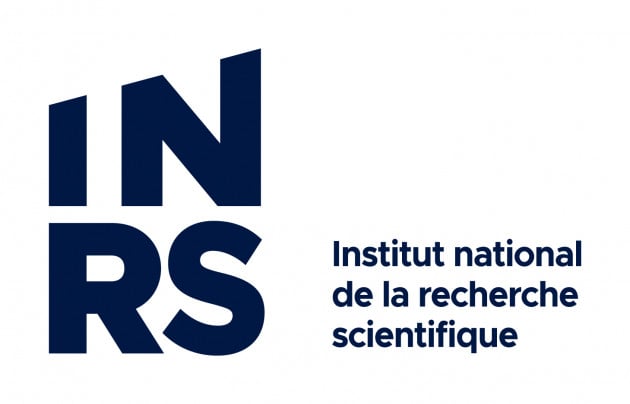
Professor in Environmental Technologies for Energy Transition
Institut national de la recherche scientifique
3351, boul. des Forges, Trois-Rivières,QC- Salary 98982.00 to 128599.00 $ per year according to experience
-
35.00 h - Full time
-
Permanent job
-
Day shift work
- Published on June 6th, 2025
-
1 position to fill as soon as possible
Description
Professor in Environmental Technologies for Energy Transition (AP25-04-59505)
Join INRS!
Institut national de la recherche scientifique (INRS) is a human-scale university-level institution dedicated to research and graduate training. Our organization, with its 700 employees, is dedicated to supporting innovation and excellence since 1969, in a dynamic and multidisciplinary work environment.
Do you want your research to make a difference? Join an institution that stands out. More than just a university: a community!
As a member of INRS, you will contribute to its unique mission of research and graduate training directed towards serving Quebec society.
Position Summary
Ranked first in Canada for research intensity (grant total per professor), INRS brings together 170 professors and about 800 students and postdoctoral fellows in four centres located in Quebec City, Montreal, Varennes and Laval.
INRS Eau Terre Environnement Research Centre (ETE) is situated in the heart of Quebec City, with major research facilities located in the Quebec Metro High-Tech Park. The Centre brings together a total of 37 faculty members, 100 research and research support staff, 33 administrative employees and 220 graduate students.
INRS’s Joint research units (UMRs) are interuniversity partnerships established with collaborating universities to develop cutting-edge research capacity in areas of significant societal impact, in regions of Québec that are strategically important to these fields. The five UMR themes include: materials and technologies for the energy transition, cybersecurity, digital transformation in support of regional development, sustainable health, and Indigenous studies. Each UMR brings together professors from both institutions, trains students, and generates significant regional impacts.
The Centre invites applications for a position of Professor in environmental technologies for energy transition. within the UMR formed in collaboration with the Université du Québec à Trois-Rivières (UQTR). This position is aligned with the UMR's theme and aims to meet societal and scientific demands related to climate change mitigation through economic decarbonization, with a focus on batteries, hydrogen, and the recycling of critical and strategic minerals. The UMR is located near key industrial stakeholders working in the heart of the Vallée de la transition énergétique innovation zone, particularly in the battery and hydrogen sectors.
The recruited candidate will be a member of the professorial assembly or the ETE Centre and will work at the UMR facilities at UQTR, with others professors affiliated with both the INRS’s Energy, Materials and Telecommunications Centre and UQTR’s Department of Biochemistry, Chemistry, Physics and Forensic Science. They will be part of a dynamic interdisciplinary research environment focused on the energy transition. They will contribute to the scientific programming of the UMR while also enhancing the ETE Centre's research program.
The candidate’s research program should focus on emerging areas of the energy transition, with emphasis on several key themes, including batteries and green hydrogen, innovative materials for electrodes and electrolytes, circular economy and waste recycling related to the energy transition, and green hydrogen production and usage technologies. The successful applicant will collaborate with a team of researchers using physical and chemical approaches for the synthesis and characterization of materials, while also leveraging numerical simulations to accelerate discovery and model energy systems.
The candidate will have access to existing infrastructure within the UMR and INRS, including the equipment available at the Environmental Technologies Laboratory (LISTE), and will eventually benefit from infrastructure under development within the INRS-UQTR UMR and at UQTR.
Work environment
Requested skills
Education
- PhD in a relevant field.
Experience
- Show interest and ability in developing industrial, community, and/or governmental partnerships;
- Expertise in process modeling, energy efficiency, or life cycle analysis is an asset;
- Early-career researchers will be given priority for this position.
Standard Requirements
- Possess excellent scientific productivity demonstrating autonomy and originality;
- Demonstrate strong potential to obtain the necessary funding for research activities;
- Possess aptitude for teaching and academic training of 2nd and 3rd cycle students;
- Possess skills for teamwork within multidisciplinary networks with a high capacity for adaptation.
The working language is French. Advanced knowledge of English is essential. Candidates with limited knowledge of French are strongly encouraged to apply. The necessary resources will be made available to facilitate the successful candidate's learning.
Equal Opportunity Employer
This employer is an equal opportunity employer committed to diversity and inclusion. We are pleased to consider all qualified applicants for employment without regard to race, color, religion, sex, sexual orientation, gender identity, national origin, age, disability, protected veterans status, Aboriginal/Native American status or any other legally-protected factors. Disability-related accommodations are available on request for candidates taking part in all aspects of the selection process.
Requirements
University
PH. D.
Completed
undetermined
undetermined
undetermined
AP25-04-59505
Other Institut national de la recherche scientifique's offers that may interest you






